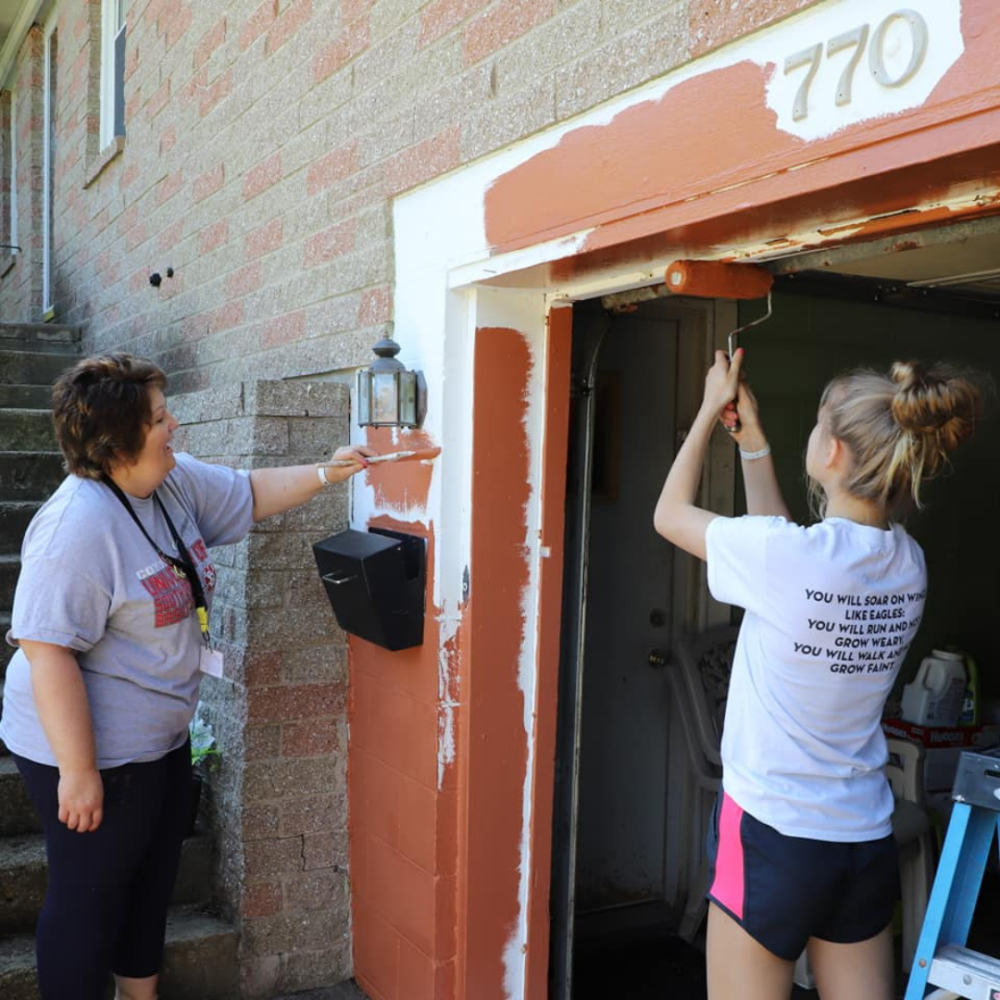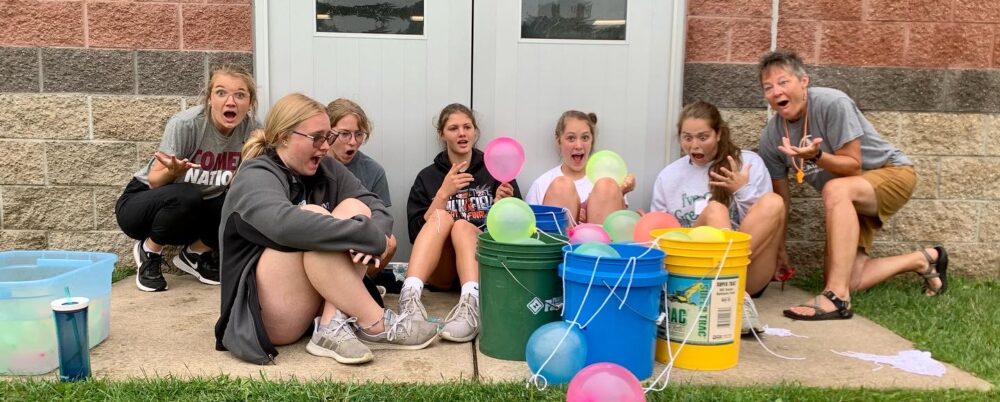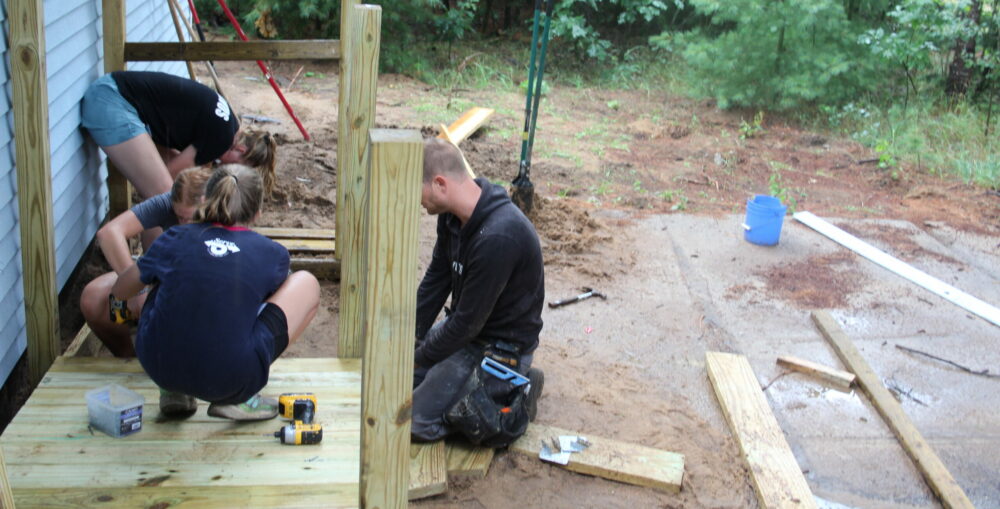Full Transcript:
Amanda:
Hi. Thanks for joining us. I’m here with my friend, Brian, and we’re going to talk about volunteer restructuring.
What does it look like when seasons of youth ministry are changing and maybe your volunteers who were there are no longer, or you’ve got a new mission or vision, or you’re taking youth ministry in a different direction, what does that look like? I think in order to determine what dysfunction looks like, we have to determine what health looks like. So what does a good healthy youth ministry team look like, and how do we achieve that in youth ministry?
Brian:
It was interesting. We were just talking, some of us youth leaders, about how our youth team can often feel like our small group because we spend a lot of time together, we have similar interests in student ministry, those sorts of things, and so it can feel a lot like a healthy small group. In terms of how we care and connect with the students though, I think you’re often going to find a variety of volunteers. So you’ll have some folks that are the life of the party and the kids gravitate toward their energy. You’ll have other folks that are the ones that are going to make sure all the trains run on time during your events and that things aren’t forgotten when you head out for that weekend retreat.
Just in our own youth group, it’s funny, it’s well known that I am not a sports person, so I don’t even know who’s playing in the Super Bowl until we get to our youth group Super Bowl party, but I know I have other leaders who cover that and can connect with the kids and talk sports and do all of that. So just having a variety of people, ages as well. I’ve had some older volunteers I’ve recruited and they’ve said, “We love what you’re doing. We love the student ministry, but I just don’t know. Can you really use somebody my age?” And then they get in there and it’s amazing how the kids connect with them.
Amanda:
That’s right. Having a good, diverse group of people that have a variety of interests, that are a variety of ages, demographics, that’s a key to a great healthy youth ministry.
What happens when things change and that great group of people leaves? I do want to point out that change in youth ministry isn’t always a crisis. A lot of times you’ll have youth ministry volunteers who will step down because of an illness or because of a new job or things in their lives that have changed. It’s not always a crisis. When you are looking to restructure your youth group, you have three buckets that you categorize things into. Tell us a little bit more about those buckets.
Brian:
Yeah. The question I ask myself as I think about my teams is, is there anyone that I need to either move up or over or out? Those are the three things that I think about.
I might think about it, I have a person that perhaps is new to my team and they’ve jumped in with both feet. They’re doing a great job at the tasks that we’ve given them, but I’m seeing some potential there. I notice this person ask really thoughtful questions during small group or maybe goes out of their way to connect with kids outside of the program and mentor them, or maybe has really thoughtful things to say during a Bible study. So I just wonder, and I ask that person, “Would you be interested in doing the teaching section next Sunday? Is that something maybe you could try out?” And maybe you can disciple them in that direction where they’re able to do more of the teaching. Something maybe they didn’t think they were able to do when they joined the youth team, but we see a gift there and we can move them into a more substantial role.
Amanda:
All right, your second bucket.
Brian:
The second one is moving somebody over. So that could be a situation where they came on, let’s say to your senior high program, and they’re finding out it’s a big-time commitment and it was a little bit more than they anticipated. They had said yes to it at first. They saw the job description, it looked good, but now that they’re in it and feeling it and experiencing it, the time is just large. So maybe the middle school program is a better fit where you don’t have as many weekend trips or a spring break service trip isn’t there and it fits their schedule better. They’re great leaders, they’re great at connecting with students, but there could just be something where it makes sense for them to slide over to a different ministry that still is similar.
Amanda:
That’s good wisdom. As leaders, we’re there to lead and God has given us the wisdom to manage the pieces of our youth ministry.
Brian:
Another example of moving over, I had some middle school leaders once, who connected extremely well with a group of eighth-grade girls that we had. It was just this beautiful group. The students were from all different schools. So it was neat to see them coming together, and the sense of community here. There were some leaders that really connected them and led a small group with them. Just in that circumstance, we felt like it made sense to move those leaders from the middle school to the high school group with those students just to keep that connection going because it was such a unique thing. We wouldn’t do that all the time, but in this case, it made sense.
Amanda:
Sure, being aware of what’s happening in those ministries and those relationships that are being formed and built in the mentorship that’s happened. To not disconnect that is important.
Brian:
Yeah. It was another time it made sense to move people over to a different ministry.
Amanda:
And your third bucket.
Brian:
We shouldn’t end on this. This is the sad one or the negative one. I don’t know. It’s something we deal with in ministry. There are times where there’s a vibe that’s not good within a team. There are times where somebody is not living into expectations. There are really bad times where people break the rules that we have, and depending on the severity of that, they may be moved out quickly or over a season. This is just the reality of managing a volunteer team. If we have somebody who is adversely affecting the chemistry of our leadership team, that’s something we need to pay attention to, have some conversations, do some training with that person. But there may come a point where we think this isn’t fixable and we’re just going to ask them to step out for a season, maybe find a place where they can serve that’s not so people-focused, those sorts of things.
We talked at the beginning about a healthy team, and part of that is just having good chemistry together. It’s your small group. These are the people I would hang out with, even if we weren’t doing a ministry thing. So if that’s being affected by an individual, then we need to address that.
Amanda:
Sure. And the students will pick up on that. They notice those things. I want to just bring up a good point that you said is if we’re having some trouble with the volunteer leader, we talk to them and we pour some training into them. I think these conversations can be done in a way that’s clear, in a way that’s filled with grace, in a way that is very caring and loving towards people. It doesn’t have to be a fight. It doesn’t have to be dramatic. We’re pouring into people. I think a lot of times we don’t do people favors when we keep them in a spot where they’re not growing, where their gifts aren’t being used. And the more gracious thing is to say, “Hey, this isn’t working. Let’s find someplace that is better for you.” It all comes down to being empathetic and caring for the people that are around you.
Brian:
It does.
Amanda:
As leaders sometimes the conversations are hard, but often the conversations are really good. Those check-ins, those trainings, they can lead to really great stories and tremendous growth, and amazing perspective changes in people. It’s good for our students to see that.
Brian:
It is.
Amanda:
Thank you so much for sitting down and having a conversation with me. I really appreciate your time. Thanks for joining us.
Thank you for taking the time to invest in your leadership development and your volunteer team. During our time together, we discussed volunteer recruitment, inviting others to join you in youth ministry. We talked about volunteer retention and how to holistically appreciate the people that God has put with you. And in our last video, we talked about volunteer restructuring, when you need to reorganize your team. We gave you three helpful buckets, three categories to use in your ministry context. We hope that there’s some helpful advice that you have found or a nugget of truth that you can apply to your youth ministry context.
May the Lord continue to bless your churches, your communities, and your youth ministry. And whenever you feel overwhelmed, our prayer for you is that you would be comforted by the words of the psalmist. In Psalm 55:22 it says, “Cast your cares on the Lord and he will sustain you; he will never let the righteous be shaken.”
We pray that this has been a time of growth and encouragement for you. If you have any questions or would like more information about ThereforeGo Ministries, please visit us at thereforego.com. Thanks for joining us. And may you continue to love and serve the Lord.


